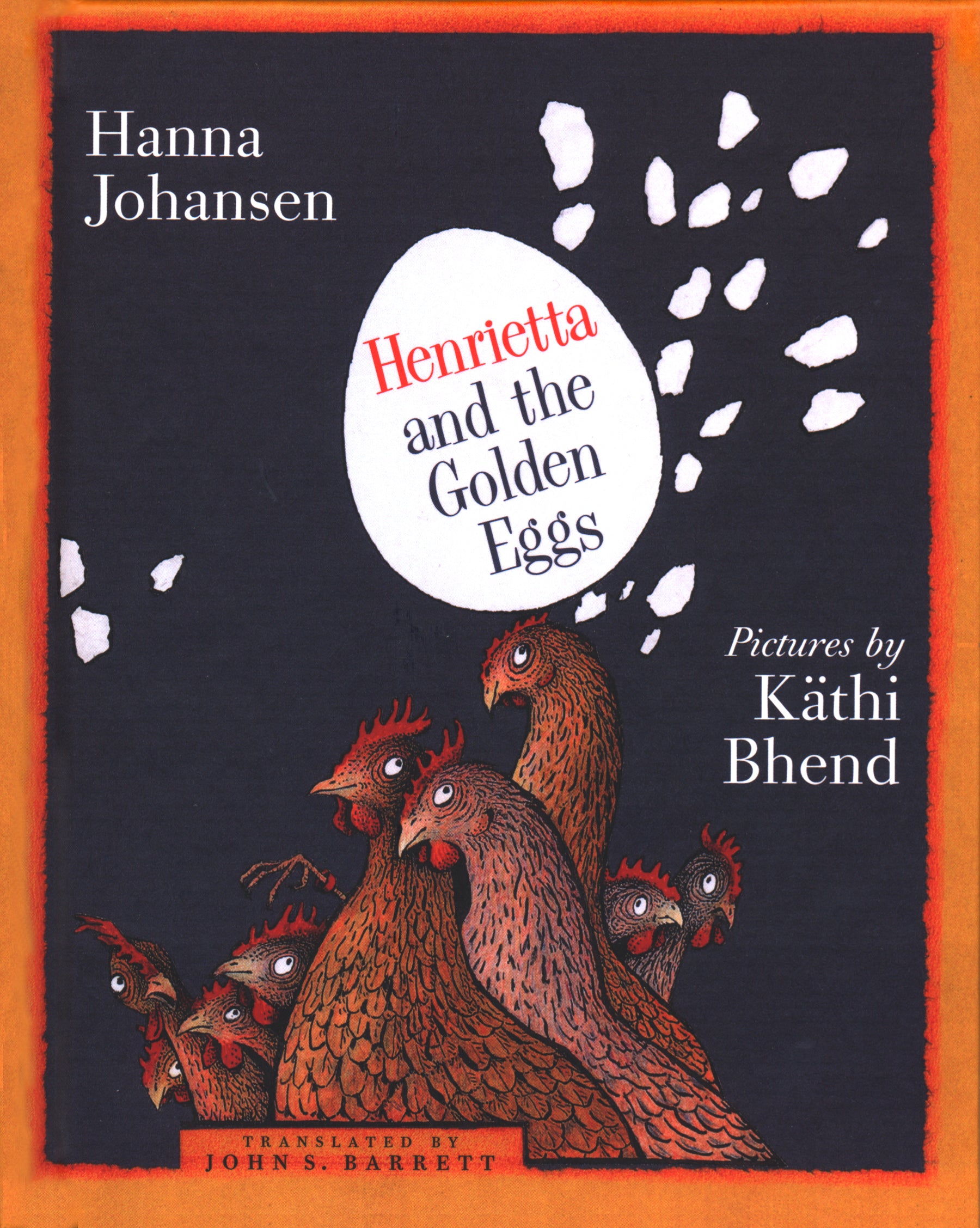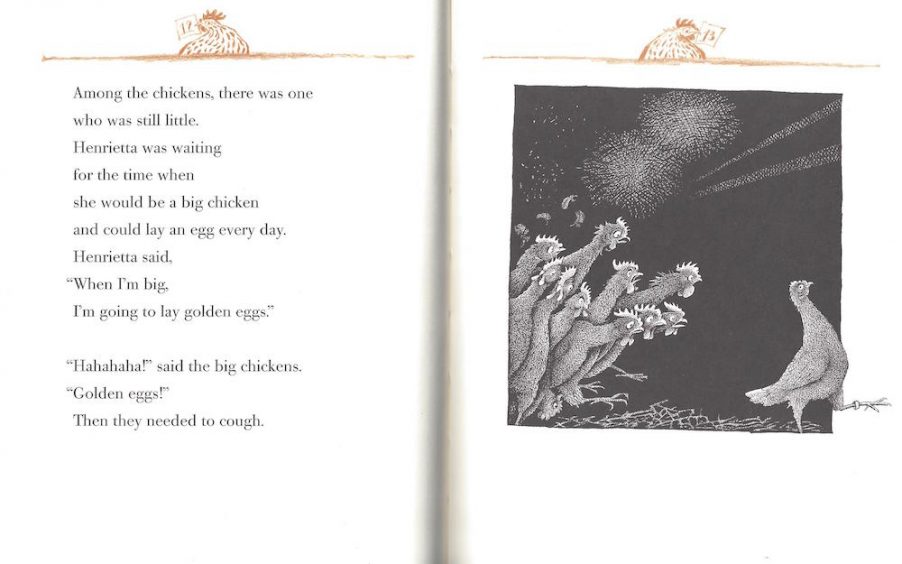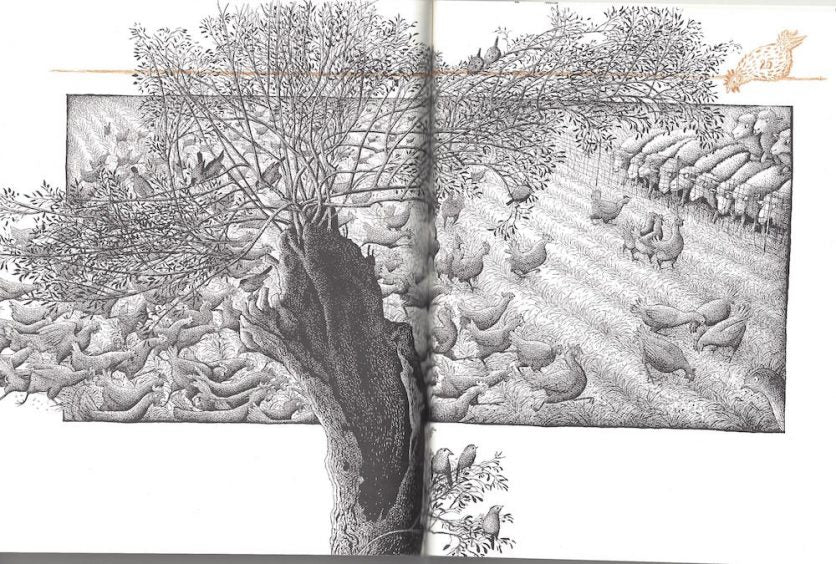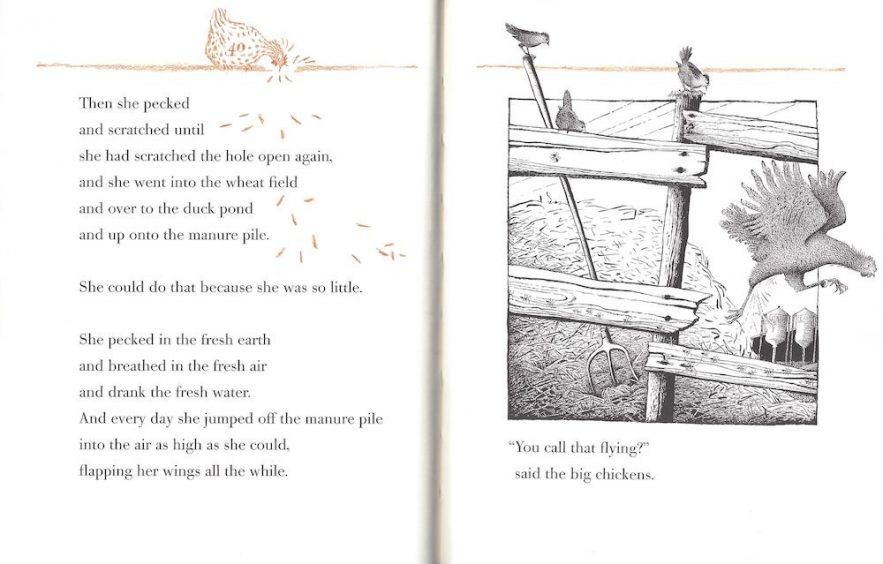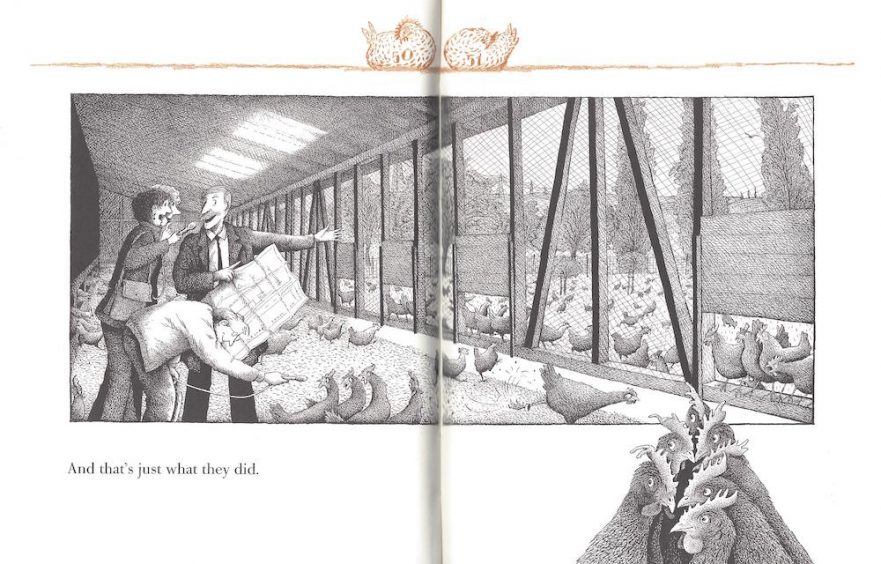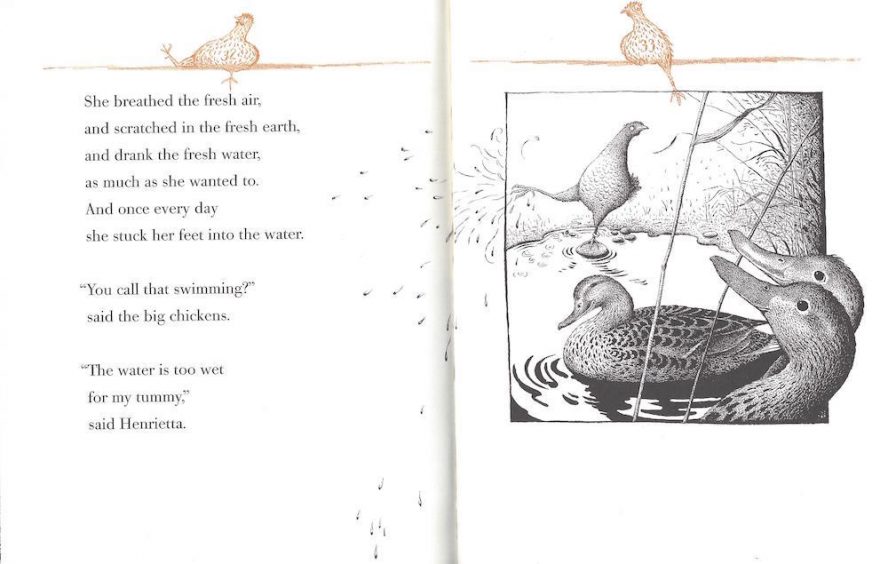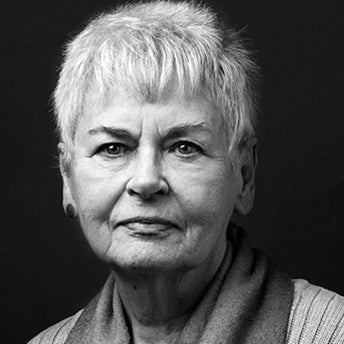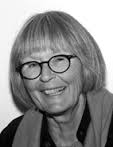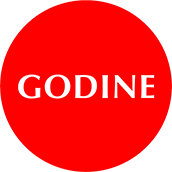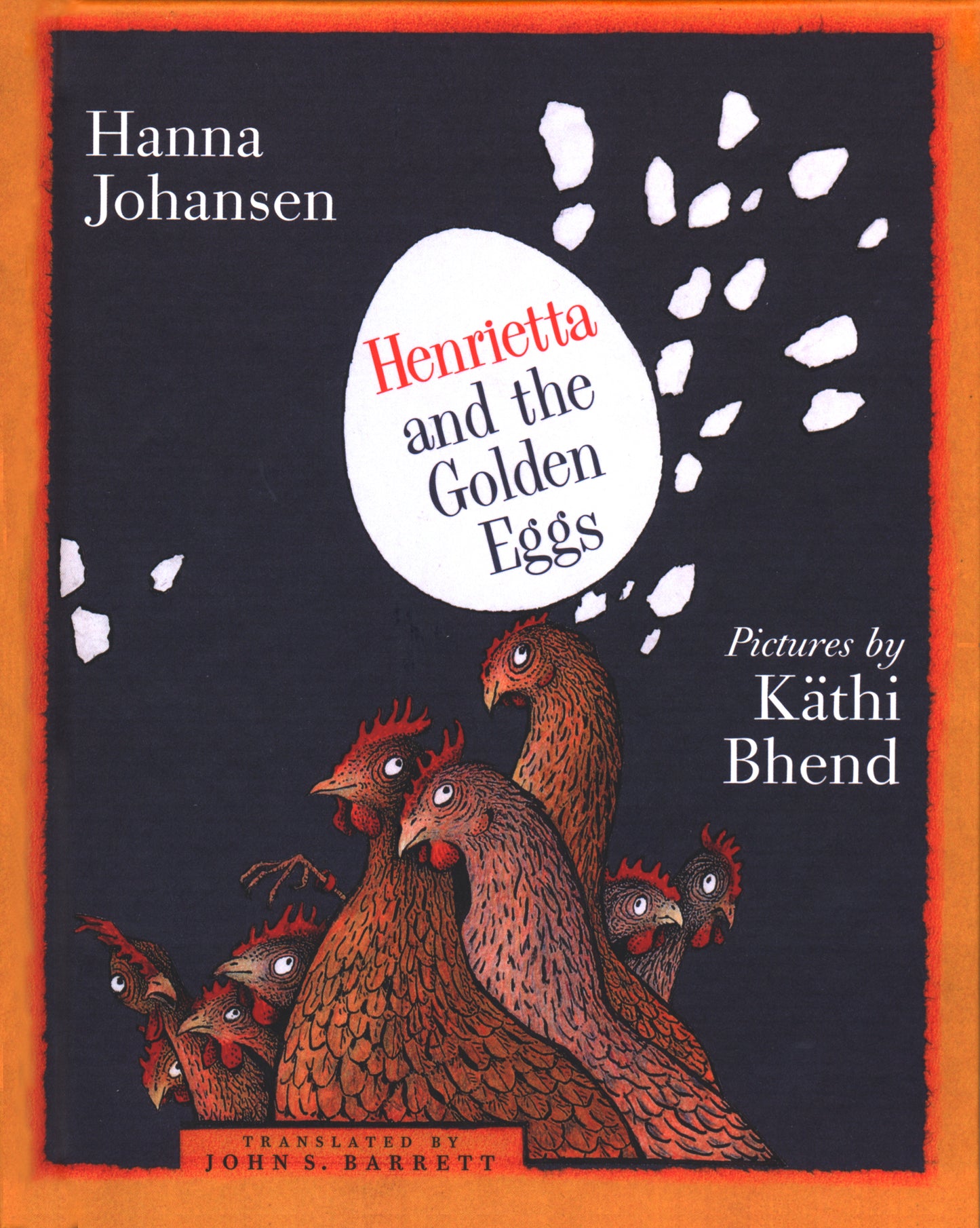
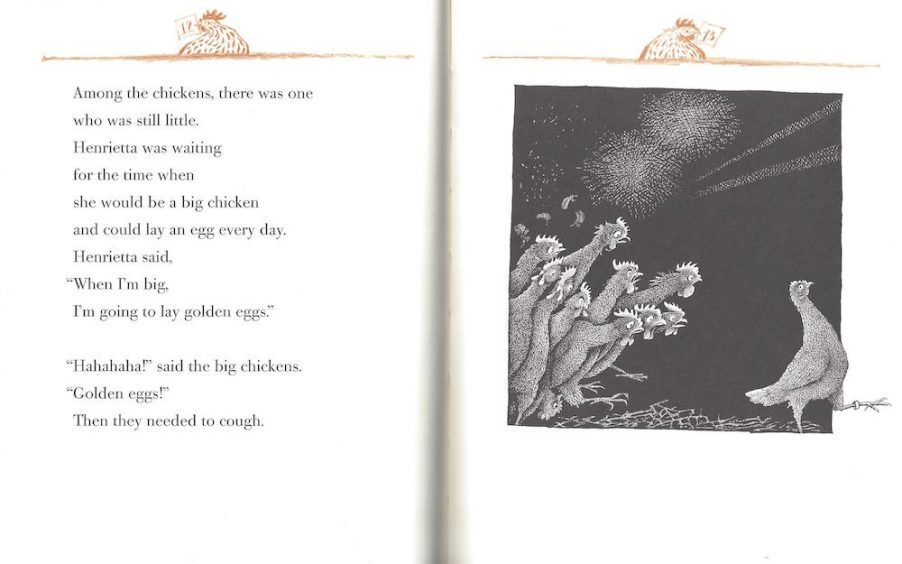
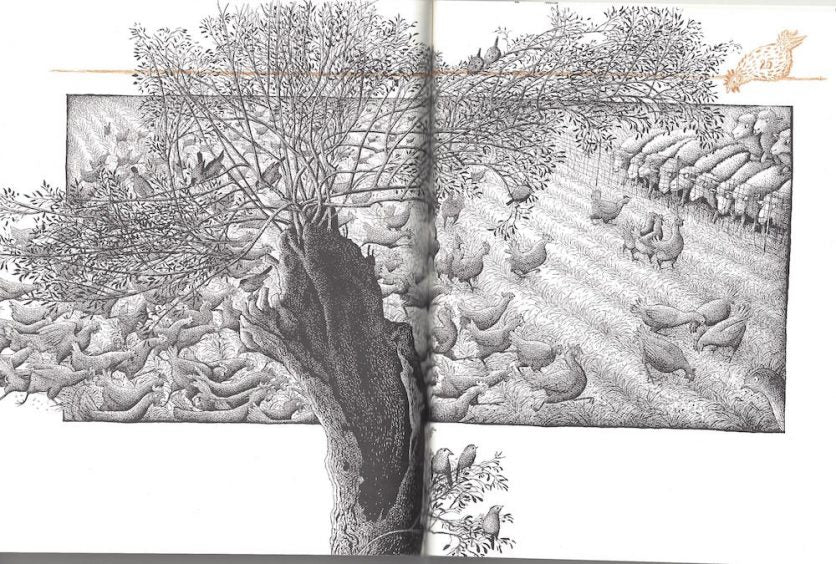
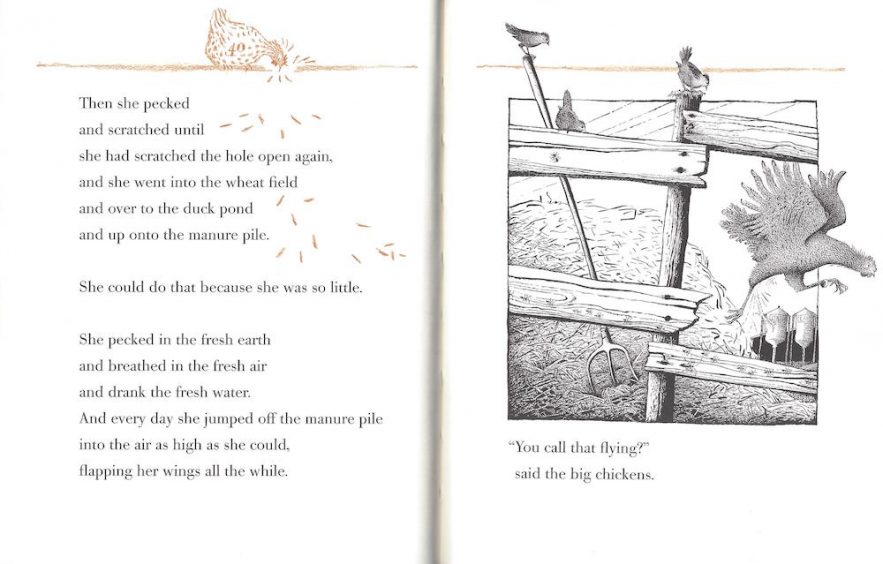
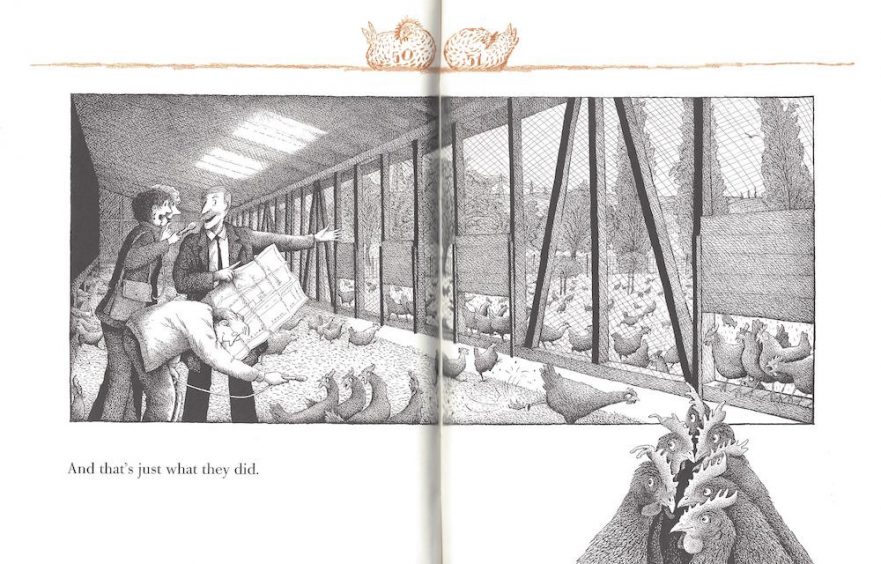
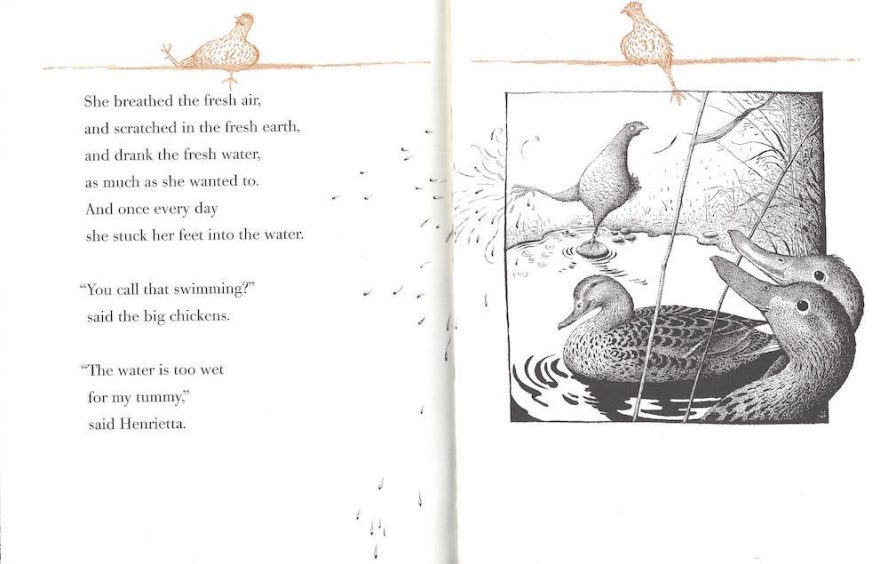
Henrietta has big dreams for a little chicken: learning to sing, to swim, to fly, and, most important of all, to lay golden eggs. Even when her three thousand, three hundred thirty-three fellow inmates in the old hen house laugh at her ambitions, Henrietta holds fast, practicing day and night. And while she's honing her talents, she's also getting ready to move on to the bigger, brighter world she can see through the tiny hole in the hen house wall.
Our heroine is no fool; she knows her limitations, but doesn't let them destroy her ambitions, any more than she lets the hen house walls keep her a prisoner. And she's not above causing a little havoc along the way — once the other three thousand, three hundred thirty-three chickens find her escape route, chaos reigns in the barnyard, by the pond, and among the wheat fields.
Whether Henrietta achieves her dreams is debatable, but through her persistence and her resolute belief in herself, she does manage to change the lives of everyone in the hen house for the better.
This delightful fable is the first book by Hanna Johansen to be published in English. The spirited pen-and-ink illustrations by Käthi Bhend, printed in two colors, capture the hen house denizens and their frenetic escapades down to the last feather.
Any book that begins with the unlovely depiction of life on a factory farm, such as this one which opens, 'once upon a time, there were three thousand three hundred and thirty-three chickens who lived in a great big chicken house . . . ' has my rapt attention from the start. In Henrietta and the Golden Eggs, the life of an egg-laying chicken on a factory farm is depicted as significantly unpleasant, including stinky air, feather loss and overcrowded conditions. However, one young chicken has her sights set on a different kind of life. Little Henrietta announces that she is going to learn to sing and lay golden eggs. . . . I commend this book for refusing to flinch from some of the unpleasant welfare and economic realities of factory farming. Henrietta herself is a spunky, likeable young bird. The pen and ink line drawings by illustrator Kathi Bhend are divine and she brings the words to life in a very appealing way. —Jennifer Gannett, Vegbooks
